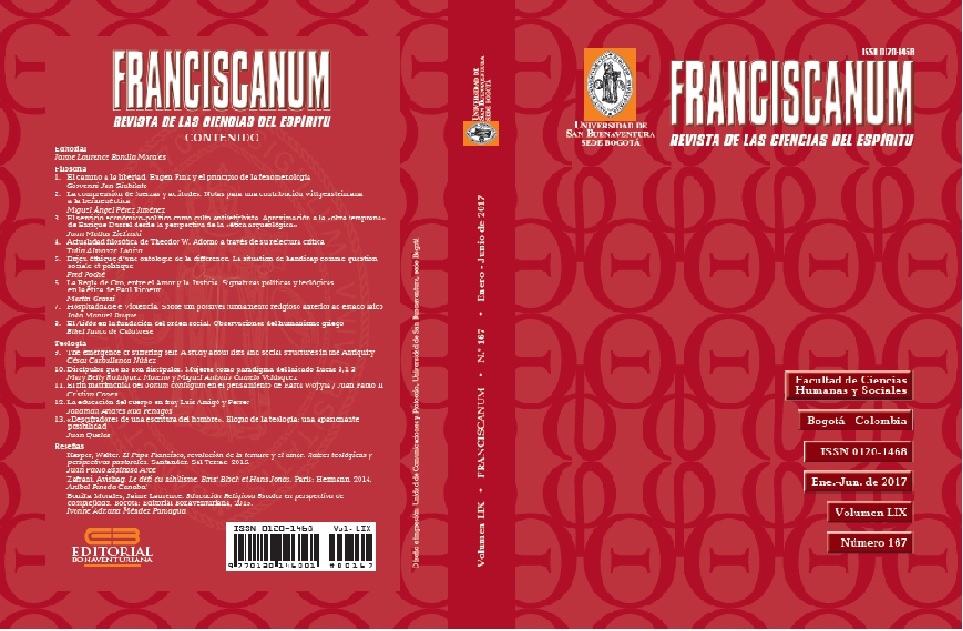This journal provides immediate open access to its content, based on the principle that giving the public free access to research helps a greater global exchange of knowledge.
Therefore, the Creative Commons 4.0 Attribution Attribution - Equal Share (by-sa) License is accepted: The commercial use of the work and the possible derived works is permitted, the distribution of which must be done with a license equal to that regulates the original work.
http://creativecommons.org/licenses/by-sa/4.0/
Along these same lines and in line with the Open Access policy, it is clarified that the authors maintain their rights to articles, without restrictions and, in the same way, they maintain their publication rights, without restrictions. They are only asked to reference the number of the Franciscanum magazine where the article initially appeared.
Abstract
En el presente artículo llevaremos adelante una lectura creativa y crítica de la obra ética de Paul Ricoeur, centrándonos en los desplazamientos semánticos que van desde la ética a la moral, desde lo formal a lo material, de lo singular a lo político, y de lo ético a lo teológico, a partir de la noción de Justicia. Para ello, nos centraremos en la consideración operativa de la justicia, en lo que llamaremos su sentido económico, y en su referencia a la Alteridad. Esta ambivalencia de la Justicia puede ser pensada desde la dialéctica que propone el pensador francés entre el amor y la justicia, y sobre todo en el caso emblemático de la «Regla de Oro». Es en este caso donde podrán confirmarse las signaturas éticas, políticas y teológicas que rodean a la idea de Justicia.
References
Duméry, Henry. Le problème de Dieu en philosophie de la religion: Examen critique de la catégorie d’Absolu et du schème de transcendance. Paris: Desclée de Brouwer, 1957.
Rawls, John. Teoría de la justicia. México: Fondo de Cultura Económica, 2012.
Ricoeur, Paul. Amor y justicia. Madrid: Caparrós, 2000.
________. Educación y política: De la historia personal a la comunión
de libertades. Buenos Aires: Prometeo-uca, 2009.
________. Histoire et vérité. Paris: Seuil, 1955.
________. «Le cercle de la démonstration». Esprit 135 (2) (1988): 78-88.
________. Lectures 1: autour du politique. Paris: Seuil, 1999.
________. Lectures 3: Aux frontières de la philosophie. Paris: Éditions du Seuil, 1994.
________. Lo justo. Madrid: Caparrós, 2003.
________. Sí mismo como otro. México: Siglo xxi, 2006.
Sen, Amartya. La idea de la justicia. Buenos Aires: Aguilar, Altea,
Taurus, Alfaguara, 2011.



















